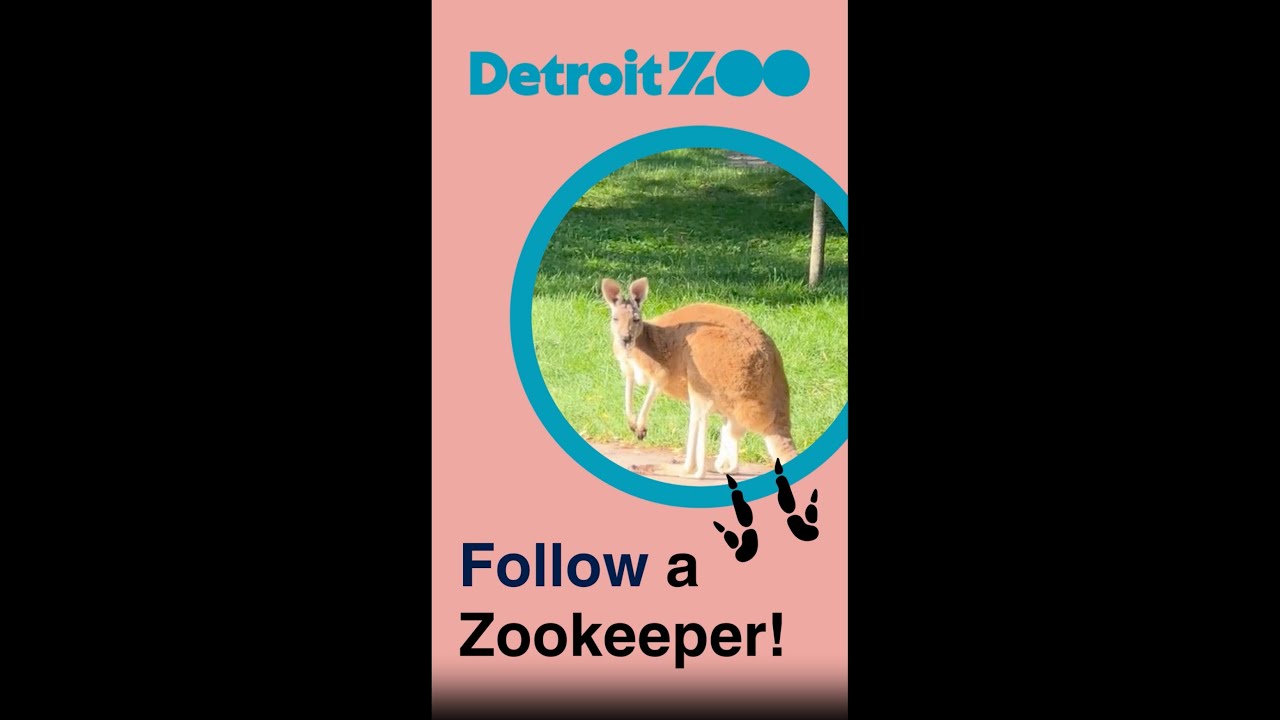- Insight into the daily responsibilities of a kangaroo zookeeper
- Emphasis on animal welfare and care techniques for kangaroos
- The role of enrichment activities in kangaroo well-being
- Importance of conservation education and public engagement
- Behind-the-scenes knowledge and skills gained from the program
Becoming a kangaroo zookeeper for a day at the Detroit Zoo is an unparalleled educational experience. It provides participants with hands-on involvement in caregiving, engaging enrichment activities, and exposing them to the rigorous demands of wildlife management and conservation efforts.
First and foremost, understanding the daily responsibilities of a kangaroo zookeeper is fundamental. A typical day starts before sunrise, as these zookeepers prepare the animals’ diets. Kangaroos have unique nutritional needs that demand careful preparation. For instance, their diet includes a balance of hay, specialized pellets, fresh vegetables, and occasional fruits to ensure they receive essential vitamins and minerals. Precision in diet management is crucial because dietary imbalances can lead to health issues.
Once feeding is accomplished, attention turns to habitat maintenance and sanitation. Zookeepers clean the enclosures, which involves removing waste, refreshing water supplies, and checking the structural integrity of the habitat. Clean and safe living conditions are vital to preventing disease and promoting natural behavior. During this process, zookeepers also have the opportunity to observe the kangaroos for any signs of illness or distress. Close observation helps in early detection of potential health problems, enabling prompt veterinary attention.
The welfare of the kangaroos extends beyond daily upkeep. Enrichment activities play a significant role in their physical and psychological well-being. These activities mimic natural behaviors and stimulate the animals mentally and physically. A zookeeper’s day includes planning and implementing various enrichment strategies. For kangaroos, this could involve puzzle feeders, novel objects for exploration, or structured play sessions. Enrichment is not just entertainment; it encourages natural behaviors such as foraging, jumping, and socially interacting with other kangaroos, which are crucial for their well-being.
Adding to the complexity of the role, zookeepers engage in continuous education and training, equipping themselves with deeper insights into kangaroo behavior and advanced caregiving techniques. Workshops on the latest research in animal nutrition, habitat design, and veterinary care are regular facets of their professional development. By staying updated, they apply contemporary, science-backed practices to improve kangaroo care.
Contributing to conservation education is another pivotal responsibility. The Detroit Zoo believes in fostering a connection between visitors and wildlife to inspire conservation efforts. Zookeepers participate in educational programs, sharing fascinating facts about kangaroos and the broader ecosystem. Such interactions help visitors understand the importance of preserving natural habitats and protecting wildlife. Through storytelling and engaging presentations, zookeepers play an instrumental role in environmental education, influencing visitors to adopt conservation-friendly practices.
Behind-the-scenes access provides participants with a more profound understanding of the intricacies involved in animal care. Such an experience is invaluable for those considering a career in zoology or wildlife management. It imparts practical skills like safe animal handling, understanding animal behavior, and employing environmental enrichment effectively.
Physical fitness and mental acuity are essential traits for zookeepers. The job is physically demanding, involving lifting, bending, and long hours on one’s feet. Emotional resilience is equally crucial, as zookeepers must handle the emotional highs and lows of working closely with animals. Developing a strong bond with the kangaroos enhances job satisfaction but necessitates a high degree of emotional intelligence and empathy.
The zookeeper-for-a-day program at the Detroit Zoo encapsulates the multifaceted nature of zoo management, grounding participants in the reality of daily operations. It sheds light on the behind-the-scenes efforts required to maintain high standards of animal care and the broader objective of wildlife conservation. Participants leave with a richer appreciation for the complexities and joys of working in a zoological setting.
This involvement is not just an immersive learning experience—it plays a crucial role in global efforts to conserve wildlife. Every individual who walks away with a deeper understanding of animal behavior and the principles of conservation becomes an ambassador for wildlife protection.
By engaging in this hands-on program, zookeepers for a day help reinforce the zoo’s mission. This mission includes not only caring for the animals within its walls but also contributing to conservation initiatives worldwide. Whether through direct interaction with the kangaroos or by aiding in dissemination of educational content, every participant in the program becomes a vital part of these overarching efforts.
Comprehensive knowledge of the animal care process, coupled with the responsibility of ensuring animal well-being and participation in conservation education, creates a robust framework for anyone interested in the nexus of zoology and environmental stewardship. This intensive program at the Detroit Zoo cultivates a profound understanding of ecological balance and the human role in preserving it, fostering next-generation custodians of the natural world.
*****
Source Description
Yoo–hoo, kangaroos! 🦘🦘🦘
Bound off with us as we follow Zookeeper Cassie through her day in the Australian Outback Adventure, where you will meet the mob and enjoy a behind-the-scenes look inside their indoor habitat.

